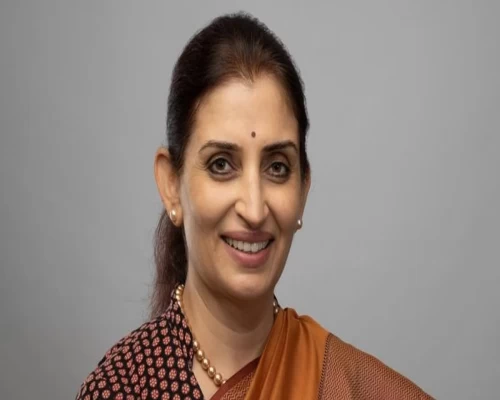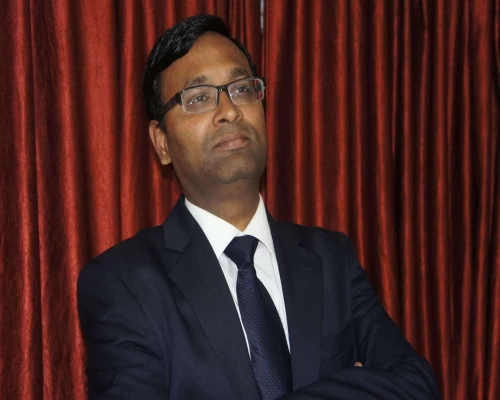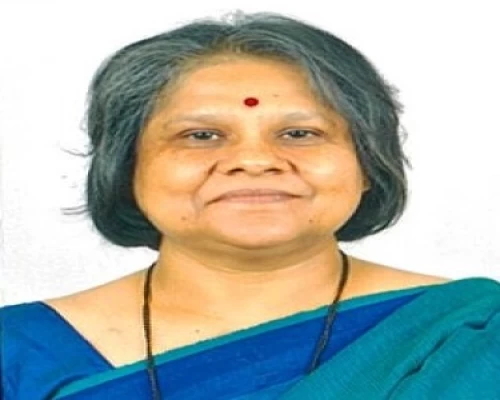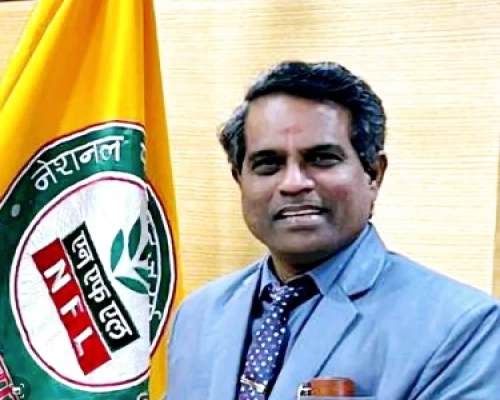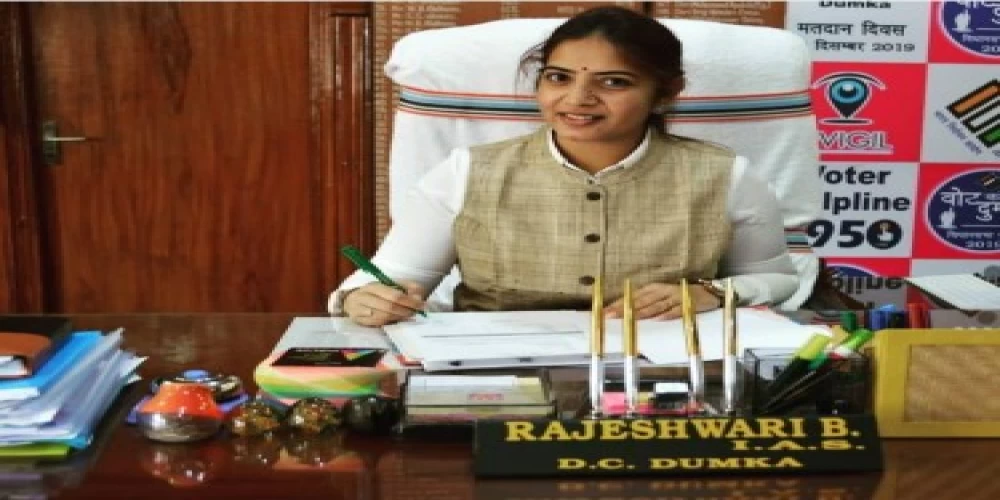
From organising online fancy dress and cooking competitions on the District Administration social media page to keep up the morale of people high during lockdown to efficiently managing Covid 19 in the district have been the hallmark of how Dumka District Collector Rajeshwari B remains committed to public welfare. A Masters in Political Science, she has proved that innovation is the key to combating a Covid19 pandemic like situation. She also believes that while helping people from marginalised sections and catering to their needs without breaking a set of guidelines issued by the government is challenging but at the same time teaches us the art of management.
In an exclusive interview with Naina Jha of Bureaucrats India, the 2011 batch IAS officer says that it was her father who was in the Excise Department who inspired her to take up Civil Services. A mother of a six years old boy also shares that fighting Covid 19 has helped her to test her strengths as a bureaucrat and use her skills productively.
How has been your journey in bureaucracy so far?
I think it has been excellent. I have had no complaints so far. It was very enriching. I have grown as a person and I think I have improved as an officer as well. Overall I can say that bureaucracy has been a positive thing in my life.
How did you adapt to the Civil Services?
I think I was a bit lucky in this as this was my first job. So I did not have to compare it to other experiences. We start with a foundation course wherein we get an opportunity to blend in with other officers who have cleared the Civil Services examination. At LBSNAA, you again go into the mode of college where you are learning new experiences, making new friends and enjoying your course. However it's challenging since there used to be a lot of physical activities, long treks, and acclimatization to the academy in Mussoorie. And I lived and loved those experiences. Once you are assigned a cadre then adapting to the cadre is a different ball game altogether. You are totally new to the set up. You don’t know anyone. So you have to make a lot of adjustments.
What are some of your achievements as a government servant which you would like to share with us?
Not wanting to sound too pompous, I think my stint as Collector, Ramgarh helped me to grow as an officer. It also gained me recognition for my work in the Swachh Bharat Mission. Ramgarh was declared to be the first ODF district in Jharkhand. I think that was a major achievement. Apart from that, we also took some good initiatives in health. Checking malnutrition among children and pregnant women were two focussed areas where things really improved. We were guided by the Aspirational District Program of NITI Aayog but it gave us perspective and we really worked hard to change the scenario in that sector. I also got an opportunity to be part of the delegation from India in World Water Week in Sweden.
I remember reading how you helped an 80-year old woman to get essentials during lockdown last year? How did you manage that situation and what were your lessons learnt?
I think corona, last year, was something that we were definitely not prepared for. I had just returned from the academy after my Phase III training. That is when the lockdown had just begun. During the lockdown, we had to face these issues of people not being able to go to shops to buy their essentials and there used to be a lot of complaints. Somehow there was a gap between people’s demand and service delivery.
However, we were trying our best. So when we got the complaint of this 80 year old lady, we got a team ready and talked to her. She required some medicines and ration. My team went to her and handed her everything she needed. Since the response time was. Dry less, she blessed and appreciated all of us. Besides this, there were many people we helped. We set up a very effective control room. My team was very proactive. Many times they have to shell out money from their own pocket but they never hesitated. So overall they did an amazing job.
As far as lessons learnt is concerned, we think we have learned but this second wave was completely different and we dealt with other issues. So ultimately what you have to learn is to be grounded to what is happening and be prepared to take immediate steps to bring the situation under control. The major issue is to build confidence among the people, because a panicked public will make things worse. There are some people, who intentionally or unintentionally, create panic among people. So we need to keep them in check. To inculcate a sense of confidence in people that we are here to help you is very important.
What aspect of your job do you enjoy the most?
Many things actually! Some are a bit more challenging. Every posting brings you some new challenges and there are pros and cons of every district. Also since you are working in the government sector, you have government programs on priority and then your own priorities as a District Collector. Most of the time priorities are common like better health infrastructure, education. But there are few things that are closer to your heart. For instance, catering to women’s livelihood is very close to my heart. I want to make them financially empowered. Education is another area where we are trying to set up smart classes, labs and libraries because we know these are the areas which are missing in government schools.
As a bureaucrat, you have an enormous opportunity to serve the people through effective implementation. How has been your experience on this count so far?
Since you are not dealing with something mechanical, you are dealing with people. It becomes difficult at times. Every project that you have to implement affects the people and communities. But you have a system in place and you try to ensure that everything goes according to the plan of the project that is laid ahead of you. But there are so many other stakeholders involved. When we talk about effective implementation, we have to consider that there may be certain areas where the people are not fully aware about how things are to be done. So taking them on board is most important. Then there are some who try to take undue advantage of the system and process. Negating their aspirations and ensuring that the right thing is done is challenging.
Implementation has to be done at various levels with many people involved. So while implementing, you see some loopholes and you have to fill them with the present system only. So I feel for effective implementation, the public needs to be on board and needs to be more aware and we need to listen to their grievances. Effective implementation is the top priority for any government servant and that is the challenge. Also the fact that most of our beneficiaries are from BPL makes it even more challenging. Many times authenticity of data is also a challenge. There are people who need to be catered to but are not in your beneficiary list then how does one cater to them?
Help us to understand how intricate it is to work for the government given the enormity of the task at hand as well as the expectations from a Civil Servant.
I think expectations are ever increasing. However, we are working with a set of guidelines, which we cannot divert from. It is also important to understand that you can’t appease someone and people come to us for some or other work. As I mentioned earlier also, there are many who need to be catered to but guidelines don't allow us. So the challenge is how we cater to their needs without breaking any rules and without going away from the guidelines.
People come to you with their expectations that you will assist them no matter what. And at the same time I think there is a general perception that the system is corrupt and everyone out there is to make money. So still I think we as District heads have become more accessible to people which is only bringing more challenges to us. But I think it's important to have this link with the people and that is when you can keep an eye on whether genuine cases are being taken care of or not. Also as a woman officer, I feel women feel that they can go and talk to us and we will understand them.
Bureaucracy in India has gone under a metamorphosis and it is far more efficient today and this has given rise to soaring expectations. How do you look at this trend?
I think it is definitely a positive trend for us. Once you are inside the system, delivery becomes a huge thing because it is not the time of anonymity. Everybody knows who is doing what. There are two expectations that you need to take care of -- one is what the government is expecting and the other is what the public is expecting from you. Not necessarily both will always be common. There may be times when you are trying to implement a government's work but the public doesn't want it to be done. So that is when the conflict arises and then you have to deal with them in a way that both of them are taken care of. However, these challenges make me enjoy my work as well.
Technology has played a role in enhancing transparency and efficiency in governance. Do you think futuristic technologies including artificial intelligence will continue to play an equally significant role in executing government welfare programs?
I think it is too soon to say anything. What we are seeing right now like Aadhaar and other such technologies being induced are not fully accepted yet by the people. But at the same time, it is also a huge advantage to us that it is definitely reducing the corruption level to quite a bit. But it is going to take time. Also we need to look at it from a geographical lens. What will work for Ranchi may not work for Ramgarh all the time. Issues like network, infrastructure, connectivity and other such basic stuff need to be put in place first. We need to be careful about what we do where?
What are the lesser known facts about bureaucracy in India?
I feel we cannot always show what we are doing. However, bureaucrats put their heart and soul in what they do. During this pandemic, my officers have worked round the clock. Often people feel that it is a life of comfort, which sometimes definitely is considering the perks, but then it is also extremely challenging. Also I think to end your day with a smile on your face is an achievement in itself.
Share your fondest memory as a Civil Servant?
There are quite a few. It was my first posting in Bundu, Ranchi district where I joined as a Sub Divisional Officer. Once I got information about a Nepali woman who was lost. She was roaming around the streets for two days. Finally some women noticed her. They gave food to her and asked her whereabouts. But she absolutely had no memory of anything. After feeding her, they brought her to me. After talking to her for some time, we got to know that she came via Sitamarhi. She got down there to go to her sister’s place but she got lost. She said that she came to Bundu walking. She was so puny. So we fed her and gave her clothes to change.
Finally we somehow got to know the name of her village. It was in Nepal. For the next three days, I was calling people in Sitamarhi and around. After so much networking, finally I got to talk to the police station of her village and I asked them whether they have any missing complaints of a widow. I told them that she has a son and a brother-in-law. So they said that they will call me back. I got a call from them after two days and they said there is a man who says that her mother is missing. So I made that woman talk to that man and apparently she recognised her kid. So we gave him the address and asked him to come to Bundu. When he came two days later, the sight was heartwarming. The woman held him and cried. It has been ten years now but it is still fresh in my memory. They kept calling me for quite a while after that just to know about my wellbeing!
Apart from this, representing India in the World Water Week in Sweden in 2018 is something I cherish. I also got an opportunity to lead a delegation of women farmers to Israel in 2018. These are some of the high points in my career.
Tell us about your family and how do you take out time for them?
Spending time with family is something I found challenging given the task at hand, because even when you are with them, you are not with them. You keep getting calls, messages on WhatsApp about the cases. Sometimes you do feel like you need a break.
I also have a six years old son but luckily I have a very supportive family. Both my mother and mother-in-law come here to take care of my son. My heart goes for women who manage things without any support. I feel I am privileged because I have a strong support system. My husband is a businessman and is a hands-on dad. At times when I am stressed, they know I am stressed and they are always there to cheer me up.
What are your hobbies and do you get time to pursue them?
I do not get much time though I do like listening to music and I am learning piano. However I am a little short of time. Also people say that I am a good cook. However, I don’t get much time to cook. But I try to cook something special on weekends. However, during the last lockdown, I tried cooking stuff like pizza. I like to read as well. I try to make time for my reading.
What is the best compliment that you got from the people while serving them?
I do not remember who said it, but some of my colleagues told me that it is amazing how someone comes to you in anger and goes out smiling. I consider this as a compliment. Another compliment, people often say that I don’t look stressed. Maybe I don’t look like it but I am stressed.
Last but not the least, a message for aspiring Civil Servants!
My message would be this is the best thing. Every day is a new day in this service. You can never get bored of your work. To clear the Civil Services exam, you don’t need to be the topper! You only need to be dedicated and work from your heart.


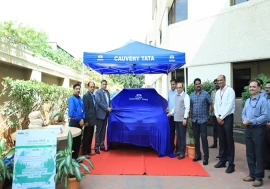
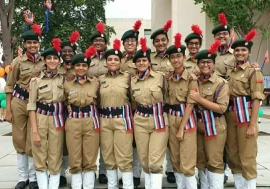
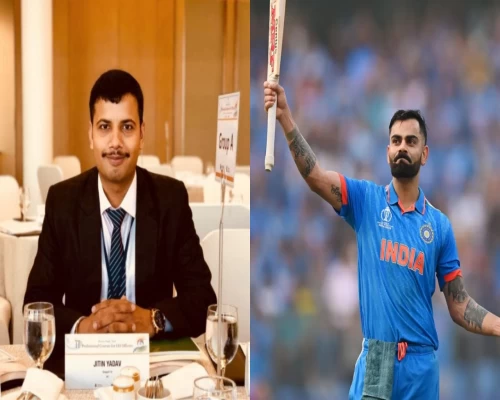
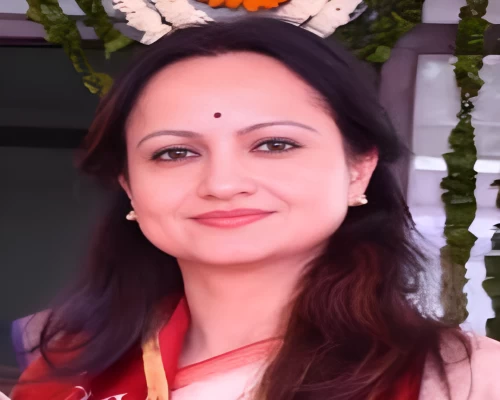
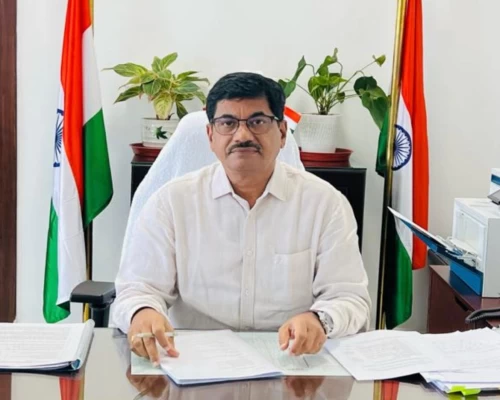
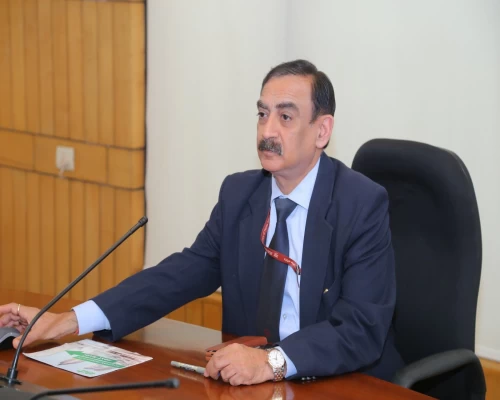
_500_x_400.webp)
